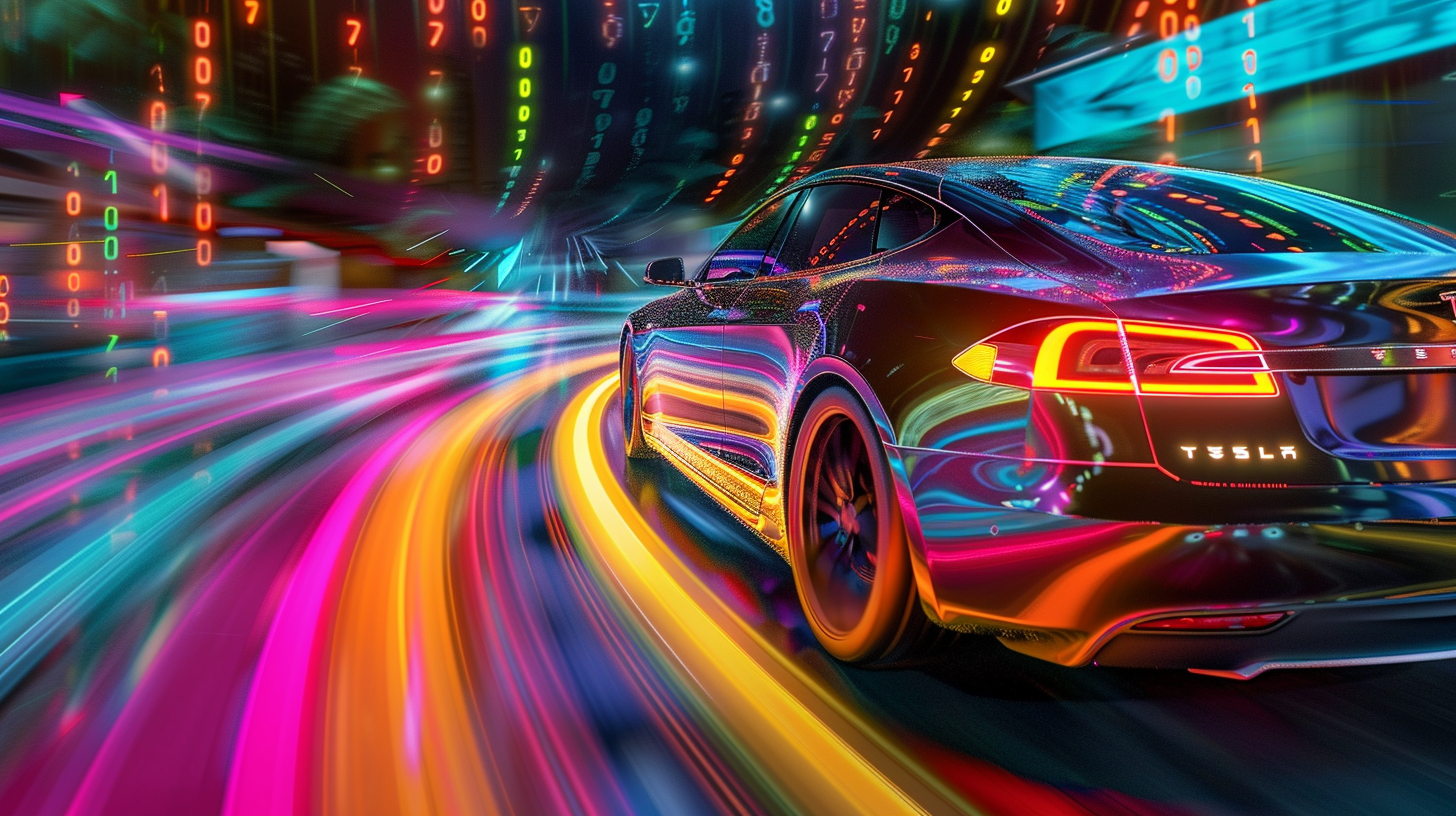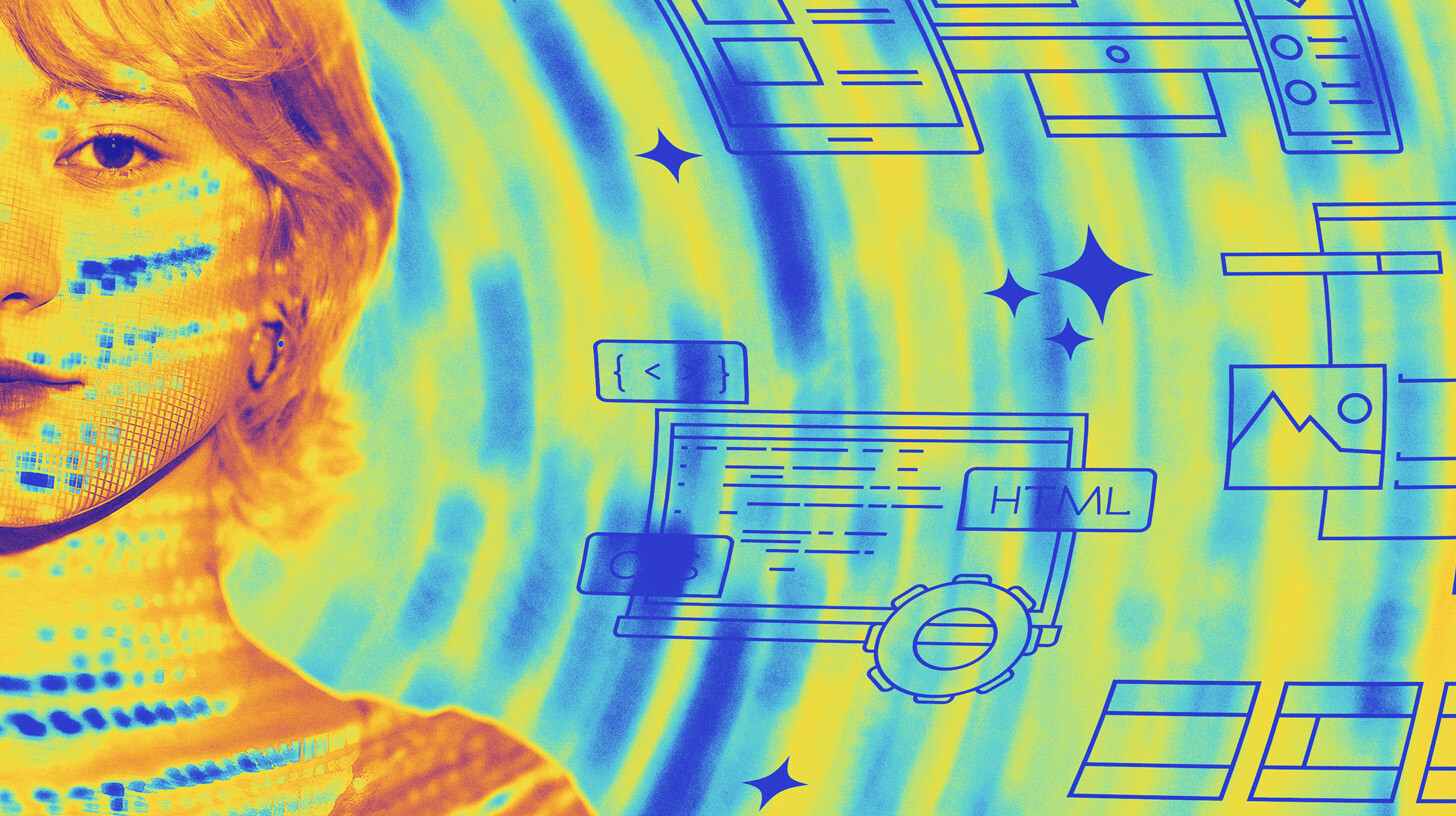Originally posted 6/21/2021. Updated 5/24/2024.
Tesla, a pioneer in electric vehicle innovation, continues to drive the automotive industry toward a more sustainable future. As consumer expectations increasingly lean towards eco-friendly solutions, Tesla remains at the forefront by advancing electric vehicle technology and integrating sustainability into its core operations. This ongoing commitment has helped it maintain its status as a leader in the green revolution sweeping across global industries.
Tesla is well-known as a disruptor in the automotive industry, and it is recognized for its bold innovations and mainstreaming of future technologies. The company, and especially its maverick CEO, Elon Musk, are no strangers to controversy, yet it’s a brand that has successfully garnered considerable customer loyalty. Let's investigate how Tesla's customer experience (CX) and customer journey have helped it get where it is today.
In 2016, a study found that 92% of Tesla owners would buy from the brand again. In the years since, Tesla has gone from strength to strength, even selling 30,000 vehicles in just 60 days in the Netherlands at the end of 2019.
Tesla has consistently met and often exceeded expectations in recent years with its innovative approaches and rapid growth. According to the latest reports, Tesla's market expansion continues with significant milestones, such as achieving record-breaking production numbers and expanding its global footprint with new Gigafactories. These accomplishments underscore Tesla’s role in reshaping automotive and international energy policies toward more sustainable practices.
Customer loyalty is unusually high, with a corresponding net promoter score (NPS) of 96%. Is the experience of buying and owning a Tesla really that unique? What is Tesla doing that makes people fall in love with the brand, and what can we learn from its success in creating better customer experiences (CX)?
Optimize ALL Customer Journey Touchpoints ALL the time
Some critics say that people are buying Teslas because owning an electric vehicle (EV) is trendy. But vehicle owners say it’s much more than that. As a brand focused on future technologies, Tesla has done a great job incorporating that futuristic feel into the driving experience and CX. They’ve taken a similar approach to iconic disruptors such as Apple and Amazon by looking ahead, anticipating what customers may value, and then serving it up to them as part of the brand experience.
A better driving experience
The focus on design and technical features indicates a solid connection to what drivers need or may want in the future to help them have a better driving experience. It’s not one thing but a host of elements that generate winning experiences. Tesla has innovated by creating a common platform and leveraging software to remotely provide upgrades and roll out new features. They also use driver feedback to innovate quickly and deliver enhancements. This is an essential and differentiated part of owning a Tesla.
A different purchasing CX
When Tesla chose the direct-to-customer (DTC) route, auto dealers were not pleased, but Tesla had something better in mind. Car salespeople have a reputation for being pushy and employing questionable tactics, which can cause customers to hesitate and anxiety when considering a new vehicle. This seamless integration of advanced technology and customer-centric sales strategies underscores Tesla’s commitment to redefining the automotive buying experience. Unlike traditional auto dealers known for their high-pressure sales tactics, Tesla has redefined the car buying experience by opting for direct-to-consumer sales through sleek showrooms in shopping malls and robust digital platforms.
The customer experience landscape at Tesla has evolved significantly, particularly in light of the challenges and opportunities presented by the pandemic and shifts in consumer behavior. Tesla has adeptly integrated artificial intelligence and machine learning to personalize customer interactions further, anticipating preferences and enhancing satisfaction at every touchpoint. This AI-driven approach refines each customer's experience and streamlines the decision-making process, making Tesla's engagement model a benchmark in automotive CX.
Tesla chose its route to serve customers better. Instead of outdoor dealerships, it went into shopping malls and, at the same time, sought to optimize the experience across all digital channels. Recognizing that most people start their customer journey online, they ensure a wealth of information is available that’s easy to navigate. This is naturally very convenient and helps to reduce buying anxiety. Plus, it demonstrates an understanding of what’s important to customers—their time. People are busy; they don’t want to go out of their way to find what they want, whether shopping online or in a mall. Tesla provided a different CX, which further helped them dramatically accelerate the sales volume and drive high customer satisfaction through the purchasing process.
Tesla addressed both the driving and purchasing experience by ensuring they didn’t drop the ball even once. They understand that even the smallest friction can result in a negative experience. This is why they focus on the littlest details to continue improving the CX for customers.
Tesla's use of data extends beyond vehicle customization—it's a vital part of its strategy to streamline the car-buying process. Recent advancements include deploying sophisticated analytics to fine-tune marketing approaches and customer interactions, ensuring that Tesla's offerings are as personalized as they are innovative. Beyond purchasing, Tesla also enhances the ownership experience through strategic customer empowerment.
Give customers control and anticipate their needs
In the buying experience, Tesla seeks to empower potential buyers with many elements to place the customer in the driving seat—quite literally! Instead of having to endure a pushy salesperson, customers can do their research, ask questions via several different channels, and even book a no-pressure test drive online. The test drive focuses on experiencing the car; in fact, there is no way to buy the car then. Tesla has carefully orchestrated communication touchpoints after the test drive to help move the decision and purchasing process forward.
It almost emulates a fine dining experience, where you never quite notice the waiter watching as you dine. The minute you place your knife and fork together, they’re there to remove your plate and ask if you’d like more wine. Anticipating customer needs and being ready to respond is not a new strategy, but it’s one rarely applied in the automotive world.
Today’s customers want to be in control and make decisions in their own time. Serving up the right information at the right time in the customer journey, every time for every customer, significantly increases the chances of getting them to buy.
But it doesn’t stop there. Recently, Tesla’s app has caught the attention of competitors for the way it connects customers with the car brand. It provides customers with everything they need regarding their driving experience. Continuing to add value to customers even after the sale garners customer loyalty and contributes to increasing their lifetime value (LVC).
Personalization that makes an impact
Consumer trends across many industries indicate an increasing demand for personalization, yet many efforts to deliver such an experience fail. Perhaps it’s because brands aren’t connected to what customers really want or aren’t tapping into customer data effectively to understand what motivates buying decisions.
Given the dynamic nature of the marketplace, failing to track and continuously draw insights from customer responses in real-time could lead to misaligned strategies. Everything Tesla does is customer-centric, and it has invested heavily in using customer data to enhance CX.
When potential buyers consider their options, they can choose from various features to customize the vehicle to their needs and budget. Once the vehicle has been ordered, customers get a detailed orientation to understand every delivery aspect, getting ready to use the car, and maintenance.
Customer data is included in this, too, as different driver profiles can be created. This goes beyond what other car manufacturers have done (e.g., customizing seat and steering wheel position) by considering how a person drives and for what purpose. A mom ferrying kids around town will have a different driving style than a salesperson spending more time on the open road. Future enhancements are set to make the driving experience even more relaxing based on personalized driver profiles.
Keeping abreast of the latest trends in automotive customer experience, Tesla has been both a leader and an adapter. Innovations such as using virtual reality in car showrooms and incorporating blockchain for enhanced service transparency are just a few areas where Tesla continues to push the boundaries of what's possible in automotive CX.
Customer obsession and data—the winning combination
To be an industry leader consistently achieving high growth targets requires more than just a customer-centric strategy; this is where technology has a role. Artificial intelligence (AI) supports customer-centric efforts because it can keep pace with market dynamics and factors influencing customer buying decisions. AI-driven optimization can enhance the digital experience by serving the right information at the right time to move the customer further along the journey. It can provide insights quickly so companies can respond to changing customer needs with relevant ideas and information. Tesla has set the bar high, but there’s still the opportunity to emulate their success.
For more insights into optimizing customer experiences across various industries, consider exploring our articles on the 8 Best Practices for Optimizing Average Order Value in 2024 and how to Solve UX Challenges With Automated UX Recommendations from Evolv AI.
To optimize the customer experience, you can schedule a demo of our digital optimization and personalization platform with one of our experts today.
Frequently Asked Questions (FAQ) About Tesla’s Customer Experience
To provide further clarity on how Tesla continuously improves its customer experience, here are some frequently asked questions:
-
How does Tesla gather and utilize customer feedback to improve their products?
Tesla actively collects feedback through multiple channels, including direct customer surveys, digital interactions, and social media platforms. This data is then analyzed to identify patterns and customer needs, which influence product updates and future vehicle design. Tesla’s approach emphasizes rapid iteration based on real-time feedback, allowing it to improve user satisfaction and vehicle functionality continuously. -
What specific features of Tesla’s app enhance the customer experience?
Tesla’s mobile app includes features such as remote control of vehicle functions (climate control, locking/unlocking, etc.), real-time location tracking, and charging status updates. Additionally, the app supports scheduling service appointments, receiving software updates, and accessing Tesla’s Energy products, providing a seamless and integrated user experience across all touchpoints. -
How does Tesla's direct-to-customer sales model impact the customer experience?
By bypassing traditional dealerships, Tesla provides a more controlled and consistent customer experience. This model allows Tesla to manage all aspects of the customer journey directly, from initial inquiry and purchase to delivery and post-purchase support, ensuring high standards of service and a personalized buying experience. -
What role does technology play in enhancing the Tesla buying experience?
Technology is central to Tesla’s strategy, particularly in leveraging data analytics and machine learning to personalize communications and offers. Tesla’s website and digital interfaces are designed for ease of use, from customizing car configurations to accessing financing options. Their technology stack seamlessly integrates with their physical products, offering a futuristic and user-centric experience. -
Can you describe a unique feature of Tesla's customer service approach?
One standout feature is Tesla's over-the-air software updates, which can enhance vehicle capabilities and address issues without needing a physical service center visit. This improves the customer experience by minimizing inconvenience and ensuring all vehicles benefit from the latest improvements and security features regardless of purchase date. -
How does Tesla ensure a seamless user experience across different platforms?
Tesla maintains a consistent and intuitive user interface across its mobile app, website, and car touchscreens. This uniformity ensures that customers receive a familiar experience, making navigating various services and settings easier, whether managing their vehicle or monitoring their Tesla Energy products.





